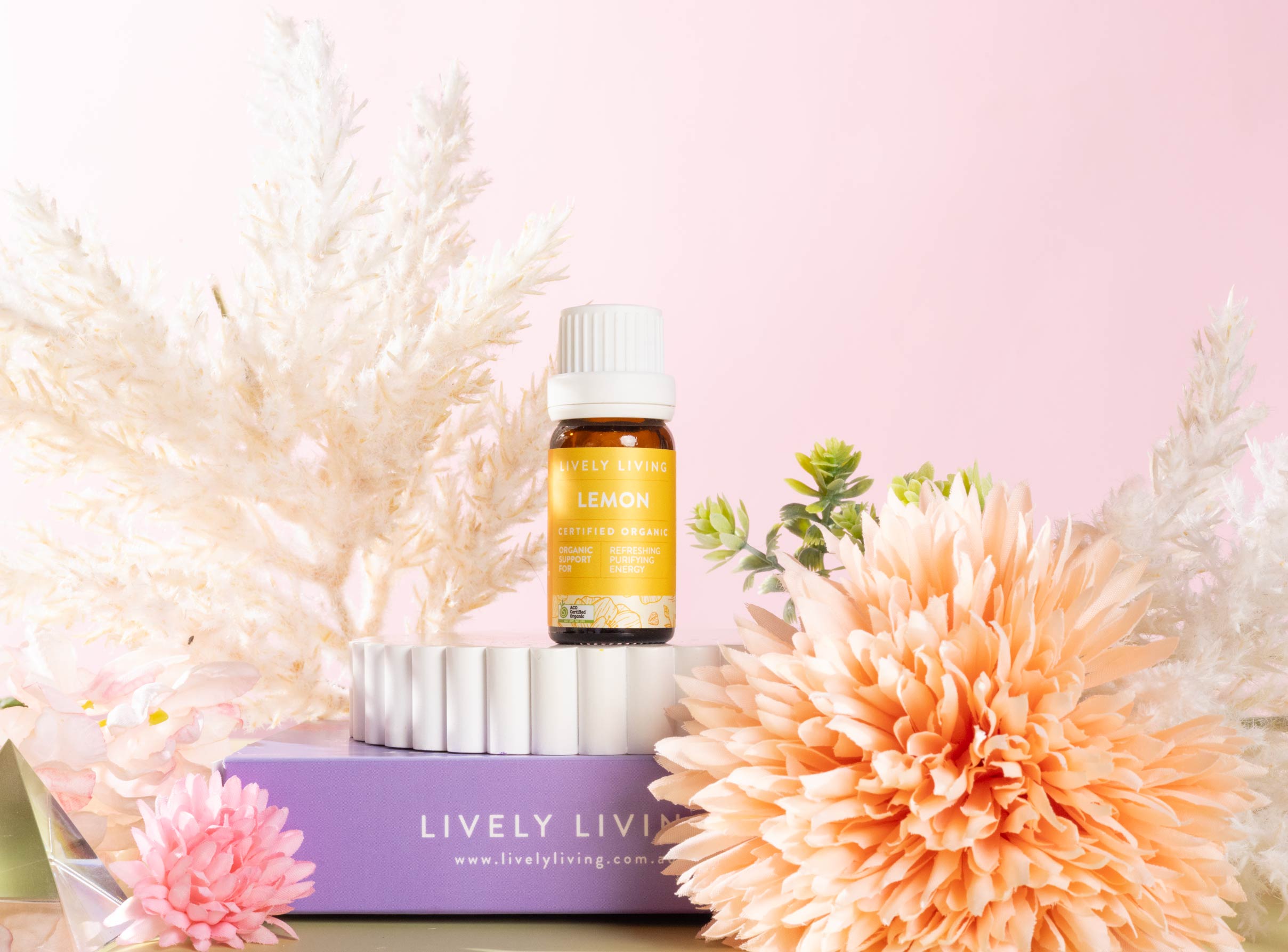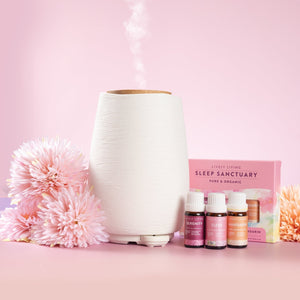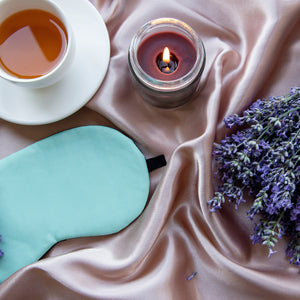Essential Oils for Mosquitoes: Natural Repellent Solutions
Ah, the great outdoors. Sunshine, fresh air, barbecues... and mosquitoes. Those tiny vampires seem determined to ruin pleasant evenings and backyard fun.
You're likely tired of the constant swatting and the itchy red bumps they leave behind. Many commercial repellents smell harsh and contain chemicals you might hesitate to put on your skin. This leads many people to look for natural alternatives, like using essential oils for mosquitoes.
Finding a natural way to keep these pests away feels much better. Thankfully, nature offers solutions that smell great to us but terrible to those buzzing intruders. Using certain essential oils for mosquitoes can be an effective way of providing protection for yourself and your family without resorting to harsh chemicals or toxic chemicals.
You'll learn which essential oils work best, understand their repellent efficacy, and discover how to use them properly for effective insect repellent action.
Summary
- Why Do Mosquitoes Bite Anyway?
- How Can Essential Oils Help With Mosquitoes?
- Finding the Best Essential Oils for Mosquitoes
- How to Use Essential Oils for Mosquitoes Safely
- Soothing Mosquito Bites Naturally
- Important Safety Considerations
- Conclusion
Why Do Mosquitoes Bite Anyway?
It feels personal when a mosquito singles you out, doesn't it? But it's not really about you specifically. Female mosquitoes bite because they need protein from blood to help develop their eggs; male mosquitoes are perfectly happy sipping on nectar.
What draws them to us? Mosquitoes are attracted by several signals we constantly give off. They can detect the carbon dioxide we exhale from quite a distance, guiding them towards potential hosts.
Body heat and specific scents on our skin, like lactic acid found in sweat, also act like a dinner bell. Some people seem to be mosquito magnets because their specific body chemistry sends out more of these attractive signals, making them more appealing targets.
Certain mosquito species, like the Aedes aegypti mosquito or the Asian tiger mosquito, are notorious not just for biting but also because they carry diseases. These include serious illnesses such as Zika virus, West Nile virus, Dengue fever, and yellow fever. Protecting yourself from bites is crucial for health.
When a mosquito lands and pierces your skin, it injects saliva. This saliva contains anticoagulants to keep blood flowing and proteins that trigger our immune system response. That annoying itch and the red bump, the classic mosquito bite symptom? That's your body's allergic reaction to the mosquito's saliva, sending histamines to the site.
Scratching only makes it worse because it spreads the saliva and increases inflammation, potentially leading to secondary infections if the skin is broken. Understanding why mosquito bites happen helps appreciate the need for effective protection.
How Can Essential Oils Help With Mosquitoes?
Essential oils are concentrated plant extracts. They contain the natural compounds, the active ingredients, that give plants their distinct aromas and provide protection against pests and diseases. Many of these same compounds can help protect us from insects like mosquitoes.
The strong scents of certain essential oils interfere with a mosquito's ability to locate its target. They work by masking the smells that attract mosquitoes, like carbon dioxide and lactic acid, making it harder for them to find you. This olfactory camouflage is a key mechanism behind their repellent action.
Some repellent essential oils contain compounds that mosquitoes simply find unpleasant or even irritating to their sensitive receptors, discouraging them from landing or biting. The specific chemical composition of each oil determines its effectiveness and mode of action. These natural compounds serve as an effective insect barrier.
Beyond just repelling mosquitoes, some essential oils also offer relief if you do get a mosquito bite, thanks to their natural anti-inflammatory and soothing properties. This makes them useful both before and after potential exposure. Using an essential oil mosquito repellent offers a plant-based approach to avoiding bites.
Finding the Best Essential Oils for Mosquitoes
Not all essential oils pack the same punch against mosquitoes. Some are well-known champions in the fight against these buzzing pests, offering significant repellent efficacy. Research and long-standing traditional use point to several key oils as effective essential options for repelling mosquitoes.
Let's look at some of the top contenders. These popular essential oils are frequently chosen for natural mosquito protection and can be used alone or in an essential oil blend for enhanced results. Finding the right oil mosquito solution often involves trying a few options.
Citronella Oil (Java Type)
You've probably heard of citronella candles or torches. Citronella essential oil, especially the Java type derived from Cymbopogon winterianus, is perhaps the most famous natural insect repellent. Its strong, citrusy scent is pleasant to most humans but overpowering and confusing for mosquitoes.
How does it work so well? Citronella oil excels at masking human scents that attract mosquitoes, as documented by researchers studying natural insect repellents. It disrupts their ability to hone in on you, providing effective protection for a limited duration.
Some evidence also suggests its active ingredient compounds, like citronellal and geraniol, might mildly affect the mosquito's nervous system, adding another layer of deterrence. Because it's so well-known and effective, citronella oil is a go-to choice and forms the base of many natural repellent blends, making it a staple mosquito repellent essential oil.
Remember that its scent evaporates relatively quickly, meaning its protection time is shorter than some synthetic repellents. Reapplication is needed for continuous protection, especially after sweating or swimming.
Lemongrass Oil
Lemongrass (Cymbopogon citratus or flexuosus) shares some similarities with citronella. It boasts a bright, fresh, lemony aroma that many people enjoy. This scent comes from compounds like citral and geraniol, which mosquitoes seem to dislike intensely.
These components give lemongrass oil its repellent qualities, making it another effective essential oil for this purpose. Studies analyzing plant-based repellents confirm its effectiveness against various mosquito species. Think of it as citronella's close cousin in the fight against bites.
Beyond repelling, lemongrass oil also has benefits for skin. Its natural antibacterial and anti-inflammatory properties can help soothe the itch and swelling of a mosquito bite. This makes it useful both before and after mosquitoes strike.
Lavender Oil
Lavender oil (Lavandula angustifolia) is incredibly versatile and a popular essential oil worldwide. We love it for its calming floral scent and skin benefits. Interestingly, while we find it relaxing, mosquitoes find it repulsive.
The key component often cited for its repellent action is linalool, though the complete chemical composition contributes. This compound gives lavender its characteristic scent and also contributes to its insect-repelling abilities. Research often mentions its role in deterring insects.
Lavender oil is also famously gentle on the skin, making it a good choice for those with sensitivities. If a mosquito does manage to bite you, applying diluted lavender oil can help calm the itchiness and reduce redness. It promotes faster healing, helping to treat mosquito problems after they occur.
Peppermint Oil
That sharp, cool, minty scent of peppermint oil (Mentha piperita) is instantly recognizable. It's refreshing for us, but it does a great job confusing mosquitoes. The strong aroma helps mask the body odors that attract them, offering another layer of protection.
The primary active ingredient in peppermint oil is menthol. Menthol provides that cooling sensation and may have mild insecticidal properties, contributing to its repellent efficacy. This cooling effect might also deter mosquitoes from landing on skin treated with diluted peppermint oil.
Peppermint's cooling power is also fantastic for soothing itchy mosquito bites. It provides immediate relief and helps reduce inflammation. But be mindful, peppermint oil is potent; always dilute it well before applying it to your skin to avoid skin irritation.
Other Notable Oils
While the above are popular choices, other essential oils also show promise for repelling mosquitoes:
- Lemon Eucalyptus Oil: Not the same as lemon essential oil mixed with eucalyptus oil, Oil of Lemon Eucalyptus (OLE) comes from the Corymbia citriodora tree. Its active ingredient, PMD (p-menthane-3,8-diol), is recognized by the Environmental Protection Agency (EPA) as an effective insect repellent. Studies show lemon eucalyptus oil provides effective protection comparable to low concentrations of DEET.
- Tea Tree Oil: Known for its potent antiseptic and anti-inflammatory properties, tea tree oil (Melaleuca alternifolia) can also act as an insect repellent. While perhaps not as strong as citronella oil or lemon eucalyptus oil for repelling, its ability to treat mosquito bites and deter insects makes this tree oil a useful addition to blends. Always dilute tea tree properly.
- Thyme Oil: Thyme essential oil contains compounds like thymol, carvacrol, and linalool, which have demonstrated significant repellent efficacy against mosquitoes, including the Aedes aegypti type. Thyme oil is quite potent and requires careful dilution to avoid skin irritation.
- Cinnamon Oil: Derived from cinnamon bark, cinnamon oil contains cinnamaldehyde, a chemical named for its origin. Research suggests oil cinnamon can be highly effective against mosquito larvae and may repel adult mosquitoes. However, cinnamon oil is a strong potential skin irritant and must be heavily diluted (less than 1%) for topical use.
- Soybean Oil: While technically a carrier oil, some studies have shown that soybean oil itself has mild insect repellent properties. It's often found as a base in commercially available natural insect repellents, sometimes combined with essential oils to enhance repellent efficacy and extend protection time.
Here is a quick comparison of some common repellent essential oils:
| Essential Oil | Primary Active Ingredients | Scent Profile | Key Benefit | Notes |
|---|---|---|---|---|
| Citronella Oil (Java) | Citronellal, Geraniol | Strong, citrusy, grassy | Strong repellent, scent masking | Well-known, shorter protection time, needs frequent reapplication. |
| Lemongrass Oil | Citral, Geraniol | Fresh, lemony, earthy | Repellent, soothing for bites | Similar efficacy to citronella oil for repelling mosquitoes. |
| Lavender Oil | Linalool, Linalyl acetate | Floral, sweet, herbaceous | Gentle repellent, very calming for skin/bites | Milder repellent, good for sensitive skin. |
| Peppermint Oil | Menthol, Menthone | Strong, sharp, minty, cooling | Scent masking, cooling relief for bites | Potent, requires careful dilution, avoid sensitive areas. |
| Lemon Eucalyptus Oil (OLE) | PMD (p-menthane-3,8-diol) | Strong, camphoraceous, citronella-like | Highly effective, longer protection time, EPA-recognized active ingredient | Different from blending lemon and eucalyptus oils. |
| Tea Tree Oil | Terpinen-4-ol | Medicinal, herbaceous, camphoraceous | Mild repellent, antiseptic for bites | More known for treating bites than primary repelling. |
| Thyme Oil | Thymol, Carvacrol | Strong, spicy, herbaceous | Potent repellent | Requires significant dilution due to potential skin irritation. |
| Cinnamon Oil (Bark) | Cinnamaldehyde | Warm, spicy, sweet | Potent repellent, larvicidal | Very high risk of skin irritation; use extremely diluted or avoid topically. |
A Note on Essential Oil Blends
Sometimes, combining different essential oils creates a synergistic effect. An essential oil blend can offer broader protection by presenting mosquitoes with a complex mix of repellent scents. You might find an oil blend works better than a single oil, potentially increasing the overall protection time.
Many companies offer pre-made 'bug away' blends or mosquito repellent essential oils formulas. These often combine several of the oils mentioned above, like citronella, lemongrass, lavender, and peppermint, sometimes with others like cedarwood, geranium, or rosemary oil for added punch. Using a pre-made oil mixture saves you the trouble of sourcing and mixing individual oils.
Creating your own oil blend allows customization based on scent preference and observed effectiveness. Experimenting with different combinations can help find the most effective essential oil mosquito repellent for your needs. Always ensure the total concentration of essential oils in your final product is safe for application.
How to Use Essential Oils for Mosquitoes Safely
Using essential oils effectively means using them safely. These are powerful substances, and misuse can cause skin irritation, allergic reactions, or other issues. Always follow proper guidelines for safe application.
The most crucial rule is dilution. Never apply undiluted essential oils directly to your skin. You need to mix them with a carrier substance first to prevent adverse reactions.
Diffusing Oils
One easy way to keep mosquitoes away from an area is diffusion. An essential oil diffuser disperses micro-particles of the oil into the air. This creates an environment mosquitoes prefer to avoid, offering area protection.
Use a diffuser on your patio, deck, or even indoors near open windows or doors. Add about 5-10 drops of your chosen repellent essential oil (like citronella oil or lemongrass oil) or blend to the water in your diffuser reservoir. Run it during times when mosquitoes are most active, typically dusk and dawn.
This method helps protect a general area without needing any oil applied directly to your skin. It's a good passive approach for outdoor relaxation spaces. Remember that effectiveness depends on air currents and the size of the space.
DIY Repellent Sprays
Making your own mosquito repellent essential oil spray is simple and effective. You control the ingredients, avoiding unwanted chemicals often found in commercial insect repellents. A homemade oil spray allows for easy reapplication when you're outdoors.
To make a basic water spray repellent, you'll need a small spray bottle (glass is best as oils can degrade plastic), distilled water, witch hazel (or high-proof vodka/rubbing alcohol), and your chosen essential oils. The witch hazel or alcohol acts as an emulsifier, helping the oils mix temporarily with the water.
A general recipe for a 4-ounce spray bottle is:
- Fill the spray bottle about halfway with distilled water.
- Add witch hazel or alcohol, filling it almost to the top (leaving some headspace for oils and shaking).
- Add 30-50 drops total of essential oils. You can use one oil or a preferred oil blend. Good combinations include citronella/lemongrass, lavender/peppermint, or a blend containing several repellent oils like lemon eucalyptus oil and thyme oil (ensure low concentration for potent oils).
- Shake well before each use, as the oils and water will separate over time.
Spray onto exposed skin and clothing, being careful to avoid sensitive areas like the eyes and mouth. Reapply the oil spray every hour or two, or more often if you're sweating heavily, after swimming, or if you notice mosquitoes starting to approach again. The protection time varies based on the oils used and environmental factors.
Here are some specific oil mixture examples per 4oz spray bottle (adjust based on personal preference and skin sensitivity):
- Citronella Focus: 40 drops Citronella Oil.
- Lemon Fresh Blend: 25 drops Lemongrass Oil + 15 drops Lavender Oil.
- Minty Cool Blend: 20 drops Peppermint Oil + 20 drops Lavender Oil (Use caution with peppermint concentration, dilute more if needed).
- Woodsy Defense Blend: 20 drops Citronella Oil + 15 drops Cedarwood Oil + 5 drops Thyme Oil (Ensure Thyme is well under 1% of total volume).
- EPA-Inspired Blend: 40 drops Lemon Eucalyptus Oil (OLE).
Always perform a patch test on a small area of skin first, like the inner forearm. Apply a small amount of the diluted oil mixture and wait 24 hours to check for any skin irritation or allergic reaction before applying more widely. This step is vital for preventing widespread discomfort.
Topical Application with Carrier Oils
You can also apply diluted essential oils directly to your skin for protection using a carrier oil. Carrier oils are neutral vegetable oils that safely dilute essential oils and 'carry' them onto the skin. Good carrier oils include fractionated coconut oil (which stays liquid), jojoba oil, sweet almond oil, grapeseed oil, or even olive oil or soybean oil.
The general dilution guideline for body application is 2-4%. This translates to 2-4 drops of essential oil per teaspoon (5ml) of carrier oil, or approximately 12-24 drops per fluid ounce (30ml) of carrier oil. The oil applied this way creates a protective barrier on the skin.
For example, mix 15 drops of lavender oil with one ounce of jojoba oil. Rub this essential oil blend mixture onto exposed skin like your arms, legs, and neck. This method provides moisturizing benefits along with mosquito repellency.
For stronger oils like peppermint oil, thyme oil, or oil cinnamon, use a lower dilution, perhaps 1-2% (6-12 drops per ounce) or even less for cinnamon oil (below 1%). Always do a patch test first, especially with these potent oils or if you have sensitive skin. Facial applications require even lower dilutions (0.5-1%) and extra care to avoid sensitive eye areas.
Soothing Mosquito Bites Naturally
Despite your best efforts using mosquito repellent essential oils, bites can still happen. That maddening itch from a mosquito bite can drive anyone crazy. Thankfully, essential oils and other natural remedies can provide significant relief and help treat mosquito discomfort.
Diluted lavender oil is excellent for calming itchiness and reducing swelling from mosquito bites. Apply a drop or two mixed with a teaspoon of carrier oil directly to the bite. Peppermint oil, also diluted, offers a cooling sensation that distracts from the itch and reduces inflammation.
Tea tree oil, known for its antiseptic properties, can also be helpful. Apply one drop diluted in a teaspoon of carrier oil to the bite to help prevent infection and reduce swelling. Its potent nature means dilution is key.
Beyond essential oils, other simple remedies work well to treat mosquito bites. Applying a cold compress or ice pack numbs the area and reduces inflammation. A paste of baking soda and water can help neutralize the itch by altering the skin's pH locally.
Applying raw honey, known for its healing properties, can soothe and protect the bite from infection. An oatmeal bath can relieve widespread itching if you have multiple mosquito bites. Try not to scratch, as this only increases irritation and the risk of breaking the skin, which can lead to infection.
If a bite looks infected (increasing redness, pus, warmth), causes significant swelling, hives, difficulty breathing, or you have a severe allergic reaction, seek medical advice promptly. While rare cases, severe reactions can occur.
Important Safety Considerations
While natural, essential oils are highly concentrated plant extracts. Safety must always come first when using mosquito repellent essential oils or any essential oil application. Following these guidelines helps you use them effectively and avoid problems like skin irritation or worse.
Always dilute essential oils before applying them to the skin. Undiluted oils can cause irritation, redness, burning sensations, or even chemical burns in rare cases. Stick to recommended dilution percentages (generally 1-5% for body application, lower for the face or sensitive skin).
Perform patch tests before widespread use of any new oil or blend. This simple step can prevent significant discomfort. Be aware of phototoxicity; some oils, particularly citrus oils like bergamot or cold-pressed lemon (though not typically primary mosquito repellents like steam-distilled lemongrass or lemon eucalyptus oil), can make your skin more sensitive to sunlight. Avoid direct sun exposure on treated areas for 12-24 hours after applying phototoxic oils.
Use caution during pregnancy or breastfeeding. Consult with a healthcare provider or certified aromatherapist before using essential oils during these times, as some oils are best avoided. Always keep essential oils away from infants and young children, using much lower dilutions if application is deemed appropriate by a professional.
Keep essential oils away from pets. Many oils, including peppermint oil, tea tree oil, citrus oils, cinnamon oil, and pine oils, can be toxic to cats and dogs if ingested, inhaled in high concentrations, or applied to their skin or fur. Check resources like the ASPCA Poison Control website for pet safety information before diffusing oils around animals or applying repellents that pets might lick.
Store essential oils properly. Keep them in dark glass bottles, tightly capped, and out of reach of children and pets. Store them in a cool, dark place to preserve their chemical composition and potency and prevent degradation.
Never ingest essential oils unless under the specific guidance of a qualified healthcare professional trained in their internal use. Accidental ingestion can cause serious harm, and in rare cases where large amounts are consumed seizures or organ damage could occur. Most essential oils sold are intended for aromatic or topical use only, following appropriate dilution and safety protocols as recommended by environmental protection guidelines where applicable.
Pay attention to your body's reaction. If you experience skin irritation, watery eyes, respiratory issues, or any other adverse effect, discontinue use immediately. Wash the affected area with soap and water.
Also, remember that eliminating mosquito breeding grounds is a critical part of mosquito control. Regularly empty containers with standing water around your home, such as birdbaths, buckets, and plant saucers. Addressing standing water reduces the overall mosquito population near you.
Conclusion
Dealing with mosquitoes doesn't have to mean covering yourself in synthetic chemicals. Nature offers powerful tools to help keep these biting insects at bay. Using essential oils for mosquitoes provides a pleasant-smelling, plant-based alternative for effective protection.
Oils like citronella oil, lemongrass oil, lavender oil, peppermint oil, and especially lemon eucalyptus oil can effectively mask your scent or act as a repellent essential barrier. You can diffuse them, create DIY oil spray repellents using a spray bottle and witch hazel, or apply them topically diluted in a carrier oil like jojoba oil or soybean oil. Remember that the oil applied needs reapplication for sustained protection.
Finding the right essential oils for mosquitoes or the perfect essential oil blend might involve some experimenting to see what offers the best repellent efficacy for you and your body chemistry. Always prioritize safety by diluting properly, performing patch tests to avoid skin irritation, and being mindful of pets, children, and potential phototoxicity. Enjoying the outdoors more comfortably and naturally is possible with the help of these aromatic plant extracts.




















